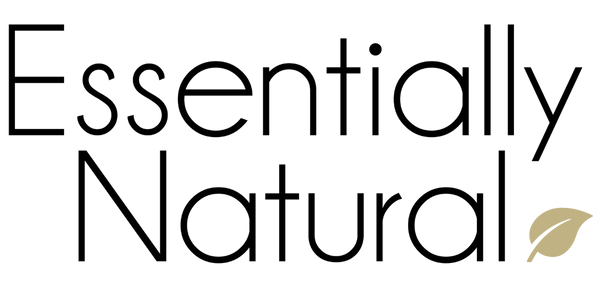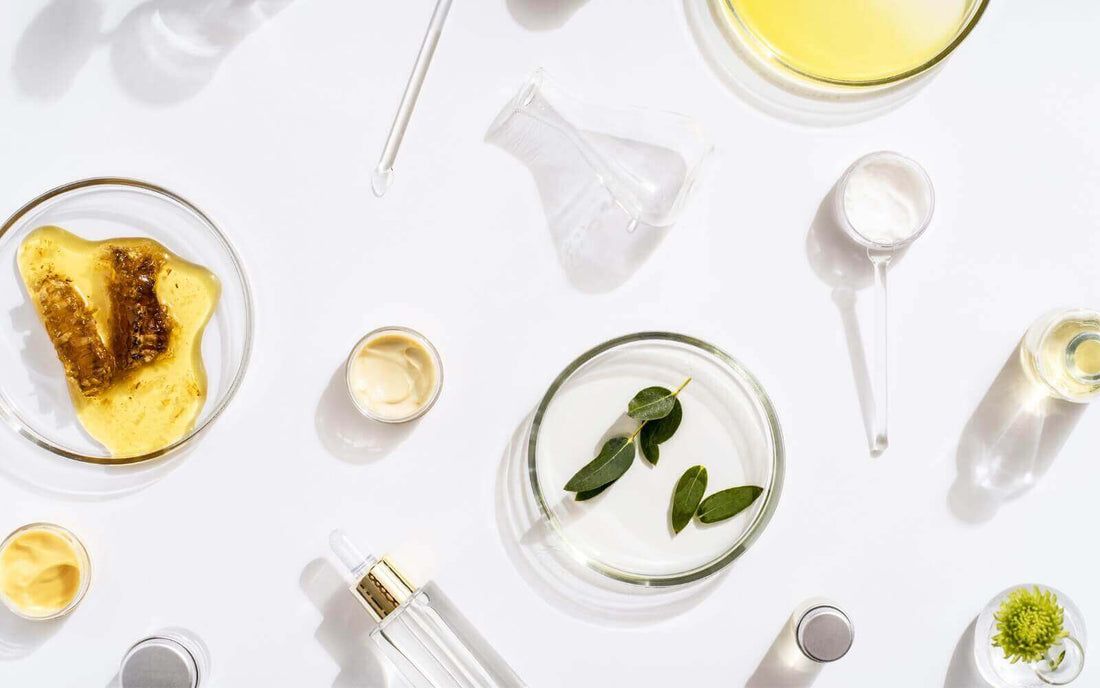Crafting Custom Skincare Formulations
We’ve spoken before about the art and science of creating custom skincare formulations. Not only is it a careful balance of ingredients, ratios and percentages, it’s also a matter of getting a formula that works for multiple people.
In the ever-evolving landscape of skincare, customisation has become a cornerstone for those seeking effective and tailored solutions. For natural product enthusiasts and business owners alike, the journey of crafting custom skincare formulations is not only about creating products; it's a testament to artistry, innovation, and a commitment to quality.
Here, we'll explore the intricate world of custom skincare formulations, drawing from a wealth of natural ingredients, specialised tools, and practical techniques to guide you on your formulation journey.
Understanding ingredients and tools
At the heart of every custom skincare formulation lie the ingredients and tools that bring your vision to life. From raw materials like botanical extracts and butters to specialised equipment such as glass beakers and pipettes, the possibilities are endless. You could create dupes of well-known products, like we did here and here.
We’ve also made incredible targeted ingredients available to you, like hyaluronic acid and vitamin C. Embrace the versatility of ingredients like alpha and beta hydroxy acids, niacinamide, and essential oils, each offering unique benefits for addressing various skin concerns. Whether you're formulating a soothing serum or a rejuvenating cream, selecting the right combination of ingredients and tools is key to achieving optimal results.
Formulation techniques and tips
Navigating the complexities of skincare formulation requires a solid understanding of formulation basics and advanced techniques. From emulsification and pH adjustment to ingredient compatibility and stability testing, mastering these fundamentals is essential for creating safe and effective skincare products.
We always recommend leveraging specialised ingredients like UV filters and humectants to enhance product performance and cater to diverse skin types. Alongside the practical tips and insights we share, as well as your own experience, we see you all gaining the confidence to experiment boldly and unlock the full potential of your formulations.
Packaging and presentation
The journey doesn't end with formulation; packaging plays a crucial role in preserving product integrity and enhancing brand identity. Some ingredients should be stored in dark glass packaging to protect them from light, whereas others need to be stored in packaging that effectively blocks out air, to avoid oxidation.
Essential and carrier oils degrade quickly when exposed to light, heat and air, making darker green or amber bottles best for their long-term storage. Botanical extracts and active ingredients may lose their efficacy when exposed to air, making them ideal for airtight storage like serum pumps, dropper bottles, or pump dispensers.
Explore a range of packaging options, from glass bottles and jars to aluminium tins and paper pouches, each offering unique benefits in terms of product protection and presentation. Adhere to labelling requirements and best practices for branding and marketing your custom skincare products effectively, ensuring that your creations stand out in a crowded market.
Safety and quality assurance
Ensuring the safety and quality of your custom skincare products is not only essential for regulatory compliance but also for building trust and loyalty among your customers. Here are some practical steps and best practices you can implement to uphold the highest standards of product safety and quality assurance in the natural skincare space:
Ingredient sourcing and purity
- Source your ingredients from reputable suppliers known for their commitment to quality and sustainability.
- Prioritise natural and organic options whenever possible to minimise the risk of contamination with synthetic chemicals or harmful additives.
- Conduct thorough research on each ingredient to ensure its purity, potency, and compatibility with other components in your formulations.
Proper handling practices
- Follow strict hygiene protocols during the formulation process, including wearing gloves, masks, and hairnets to prevent contamination.
- Keep work surfaces clean and sanitised, and avoid cross-contamination by using separate utensils and equipment for each batch of products.
Regulatory compliance
- Familiarise yourself with the regulatory requirements and guidelines governing skincare product formulation in your region.
- Ensure that your formulations comply with labelling regulations, including ingredient lists, usage instructions, and safety warnings.
- Stay updated on any changes or updates to regulations to ensure ongoing compliance and mitigate the risk of non-compliance penalties.
Batch testing and stability testing
- Conduct batch testing on each batch of products to assess their safety, stability, and efficacy.
- Test for microbial contamination, pH levels, and product consistency to ensure uniform quality across all batches.
- Implement stability testing to evaluate the shelf life and performance of your products under various conditions, including temperature and humidity fluctuations.
Documentation and record-keeping
- Maintain detailed records of your formulation recipes, manufacturing processes, and testing procedures.
- Keep batch records for each product batch, including dates of manufacture, ingredient quantities, and testing results.
- Retain samples of each batch for future reference and quality control purposes.
Continuous improvement and customer feedback
- Solicit feedback from your customers to identify any potential issues or concerns with your products.
- Use customer feedback to improve your formulations, address any quality issues, and enhance overall customer satisfaction.
- Stay proactive in monitoring industry trends and advancements in skincare formulation to incorporate new ingredients and techniques into your product development process.
By implementing these safety and quality assurance measures, you can ensure that your custom skincare products meet the highest standards of excellence, providing your customers with safe, effective, and trustworthy skincare solutions.
Working with nature is the key
As you work on your custom skincare formulations, remember that the possibilities are limitless. With a wealth of natural ingredients, specialised tools, and practical techniques at your disposal, you have the power to create products that are as unique as you are. Embrace experimentation, stay informed, and let your creativity guide you, and if you’re looking to learn more about custom formulations, let Juliette be your guide in her Beginners Guide to Custom Formulations. Your path to formulation mastery starts with us.
FAQ
What are the benefits of creating custom skincare formulations?
Custom skincare formulations offer numerous benefits, including the ability to tailor products to individual skin types and concerns, control ingredient quality, and create unique and innovative formulations that stand out in the market. By crafting custom skincare products, you can address specific customer needs and preferences, leading to greater customer satisfaction and brand loyalty.
How do I determine which ingredients are suitable for my skincare formulations?
Selecting the right ingredients for your skincare formulations involves considering factors such as skin type, desired product benefits, ingredient compatibility, and regulatory requirements. Conduct thorough research on each ingredient, including its properties, potential benefits, and any safety considerations. Experimentation and testing can also help you determine which ingredients work best for your formulations.
What are some common mistakes to avoid when formulating skincare products?
Common mistakes in skincare formulation include using improper ingredient ratios, neglecting proper hygiene practices, failing to conduct thorough testing, and overlooking regulatory requirements. It's essential to follow formulation guidelines, maintain cleanliness in the formulation process, and stay informed about industry best practices to avoid these pitfalls.
Can I create custom skincare products for specific skin concerns, such as acne or aging?
Yes, custom skincare formulations can be tailored to address specific skin concerns, including acne, aging, dryness, and sensitivity. Experiment with targeted ingredients such as alpha hydroxy acids (AHAs), retinoids, and antioxidants to formulate products that effectively address these concerns while promoting overall skin health.
What are some preservatives I can use in my skincare formulations?
ECOCERT approved preservatives such Geogard 221 and Geogard Ultra help extend the shelf life of skincare products by inhibiting microbial growth. Consider incorporating these ingredients into your formulations to provide effective preservation while maintaining a natural product profile.
How can I test my skincare products for sensitivity or allergic reactions?
Conduct patch tests on a small area of skin before applying skincare products to larger areas to assess for sensitivity or allergic reactions. Encourage customers to perform patch tests themselves and provide clear instructions for monitoring any adverse reactions. Additionally, solicit feedback from customers to identify any potential sensitivities or adverse reactions to your products.


